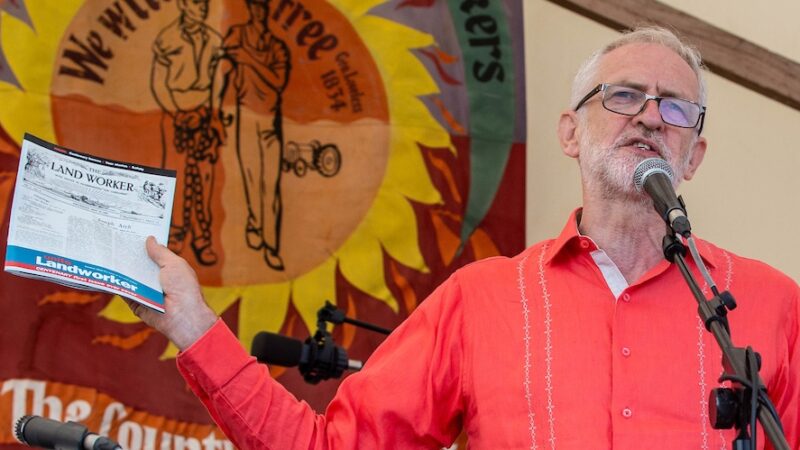Celebrating rural workers and 100 years of The Landworker journal

The trade union movement is known for what some might see as a rosy, nostalgic view of our past. But the stories of those who have worked on the land are far from nostalgic, as trade unionists earlier this week discovered at a packed fringe meeting to celebrate 100 years of The Landworker journal.
Rural and agricultural workers are an often overlooked and undervalued part of our trade union family. Many still face the same issues of low pay, job and housing insecurity as they did a century ago. The battles for justice, fairness and equality still rage on.
“The Landworker represents the outward and visible sign of the political and spiritual strength of the British agricultural labourer: it is the birth of a new power; the creation of a mighty potential force,” its opening editorial reads.
“Liberty, equality and fraternity”, “peace, retrenchment and reform,” “justice, unity and goodwill”. These are the forces; this is the faith which will be the guiding principle of this newspaper. That carried to their logical conclusion they mean revolution, we do not hesitate to say.”
Revolution indeed, nothing less. These inspiring words are from the man that founded the Eastern Counties Agricultural Labourers & Small Holders Union in 1906, later known as the National Union of Agricultural Workers, and now part of Unite the Union. That was George Edwards, a farm labourer’s son, whose vision brought about The Landworker.
At the beginning of the war, the union had 2,583 members. By 1919, as the soldiers returned from Flanders Fields to the fields of home and hope, membership topped 170,000 – the result of constant union campaigning for higher wages and better conditions during the war years.
Many returning were lonely, disillusioned and irreversibly traumatised – lost in a world that had little understanding of what they had suffered. So it was time to join the union, and they did so in their droves, demanding a better life after years of wartime sacrifice. And into this new world, with 152 days lost to strikes, Landworkerwas born, supporting activism, supporting rural workers.
Landworker captured the radicalism at home and abroad during this period and tempered it with realistic and peaceful goals. ‘Revolution’ meant “the revolution of mind, not brute force; of the saving of men’s lives, not of the bloody slaughter of their bodies; of economic, national, and international goodwill”.
Landworker continues: “That a man has a right to live, not only decently, but with leisure to cultivate the powers of his body, mind and soul, equally with others of whatever class; that the land was made for all, and not for the few; that essential industries shall be worked for the good of all; that the aged and infirm shall be cared for by the State; that women are to be placed on an equality with men.” Surely this is the very revolution that 100 years on we are still fighting today.
Over the last century, Landworker has indeed been part of this revolution – sometimes quietly, sometimes roaring like a lion – always fighting for the rights of workers many take for granted. But what of the situation facing our members today? Landworker has just reported on the impact a no deal Brexit will have on our food industry – it’s nothing short of a complete farmageddon.
No comments:
Post a Comment